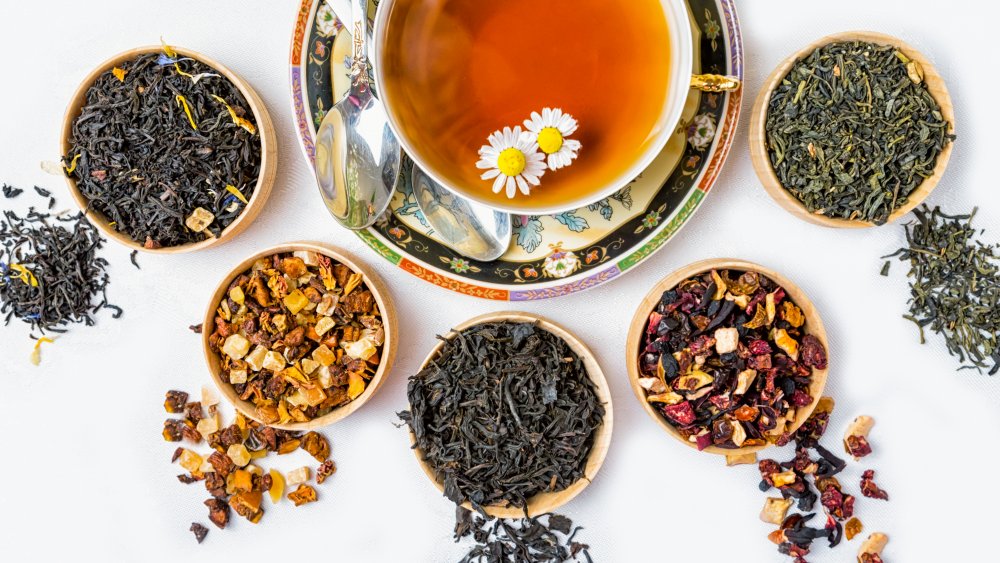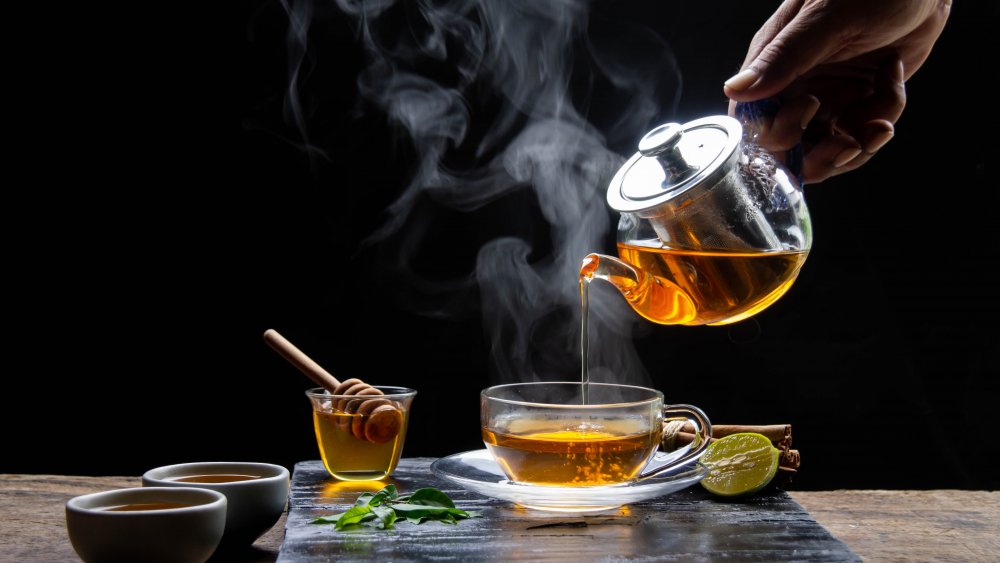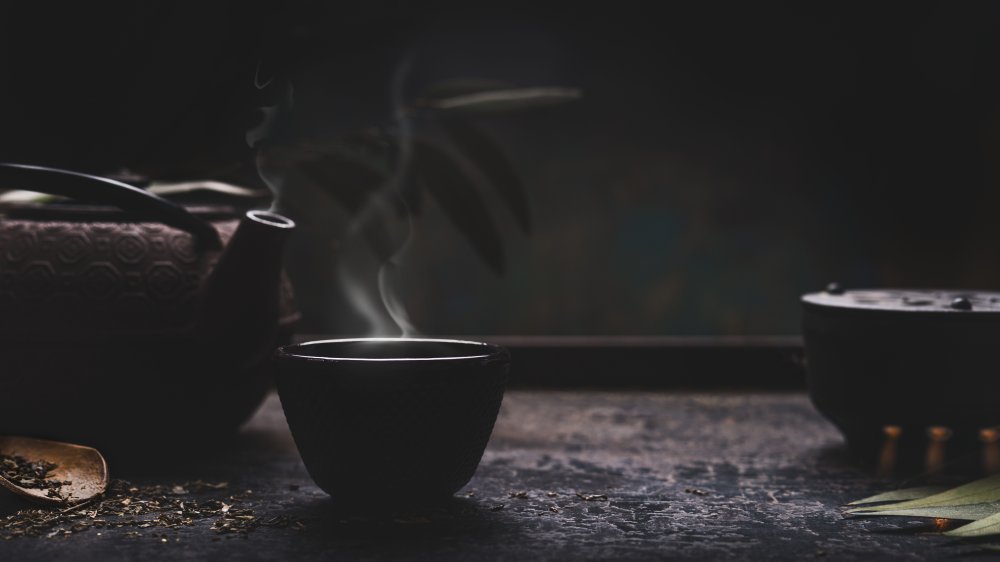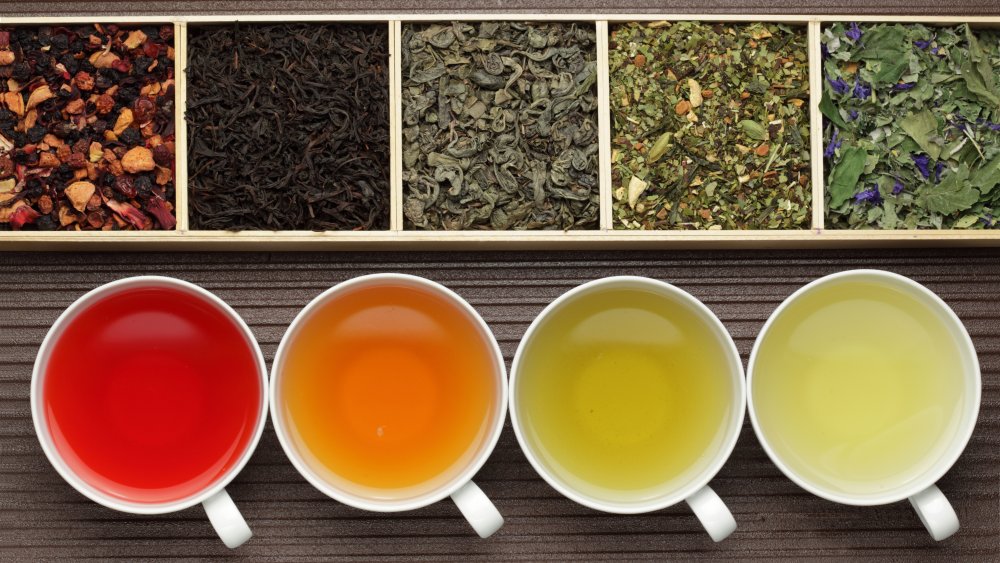Here's What Happens When You Drink Black Tea Every Day
What drink is more ancient, more ubiquitous, more calming than a steaming cup of tea? Maybe water, but that's about it. Green tea, along with matcha, seems to appear everywhere — from frappuccinos to ginger ale — but its smokier cousin, black tea, is far more popular in the United States. In fact, 84 percent of tea consumed in 2019 was black tea, according to the Tea Association of the United States.
Black tea, it turns out, comes from the same leaves as green tea, according to Healthline. The only difference? When making black tea, manufacturers allow the tea leaves to oxidize. That exposure to oxygen changes the color, flavor, and even nutritional profile of the tea leaves. Both green and black varieties are healthy, but the latter has some notable benefits for your immune system and even your heart. Plus, black tea gives your body a potent burst of caffeine, and who doesn't need that at 8 in the morning?
You regularly consume antioxidants
If you haven't heard about flavonoids, it's time to start paying attention. These powerful antioxidants have the potential to protect you from heart disease and decrease the risk of blood clots. Black tea also contains catechins, a particular flavonoid that can help keep your gut healthy, according to researchers at UC Davis. Flavonoids are also known to possibly curb high blood pressure and high cholesterol (via Healthline). They're found in various foods — from onions to dark chocolate — but they're notably high in black tea.
A cup of black tea, according to The Spruce Eats, contains 200 milligrams of flavonoids — that's a third of the daily dosage you need to truly activate its benefits. So, if you're drinking a cup a day of black tea, you're doing your body a huge favor. And of course, a strong, deeply steeped cup of tea will allow you to reap more benefits from the flavonoids, according to WebMD.
It wakes you up and it calms you
There's a reason some yoga instructors choose to serve tea at the end of a session (via Yoga Journal) — let's be real, the effect wouldn't be quite the same if you ended your yoga practice with a cup of coffee. Sure, we know that a hot cup of coffee or an icy glass of cold brew can jolt you awake with an instant caffeine rush. But for some, coffee can be a source of jitters and anxiety (via Psychology Today). It can be a pretty difficult tradeoff — you can wake yourself up, but you're compromising your mood, and possibly your mental health.
Black tea has a notable amount of caffeine — we won't lie — but it also holds a dose of L-Theanine, an amino acid that helps you feel focused and energized. However, L-Theanine has been known to keep you calm and even relaxed, according to Healthline. Since black tea contains both caffeine and L-Theanine, you're basically setting yourself up for a healthy cognitive balance, according to Huffington Post. Studies have found that this exact pairing of the two elements might even improve your memory over time.
Drinking too much can harm your kidneys
Dr. Howard Sesso, a professor at Harvard Medical School, warns aspiring tea drinkers of one thing: Don't start downing supplements that claim to contain all the benefits of tea in a tiny pill or tablet. "Drink tea if you enjoy it, in moderation, and not because you're taking it as a medicine," according to Sesso (via Harvard Heart Letter).
And yes, you can go too far when it comes to tea. If you drink a ridiculous amount of black tea — let's say, one gallon a day — it can actually jeopardize your kidneys. And yes, people have gone too far. In 2014, a man experienced kidney failure after drinking around a gallon of iced tea every day. He survived, but underwent dialysis, according to The Guardian. In a less extreme scenario, drinking too much black tea can cause kidney stones — maybe not quite as life-threatening, but definitely painful.
According to WebMD, opting for one to three cups a day can allow you to safely absorb the benefits of black tea. If you're drinking more than five cups daily, you're putting yourself at risk.



